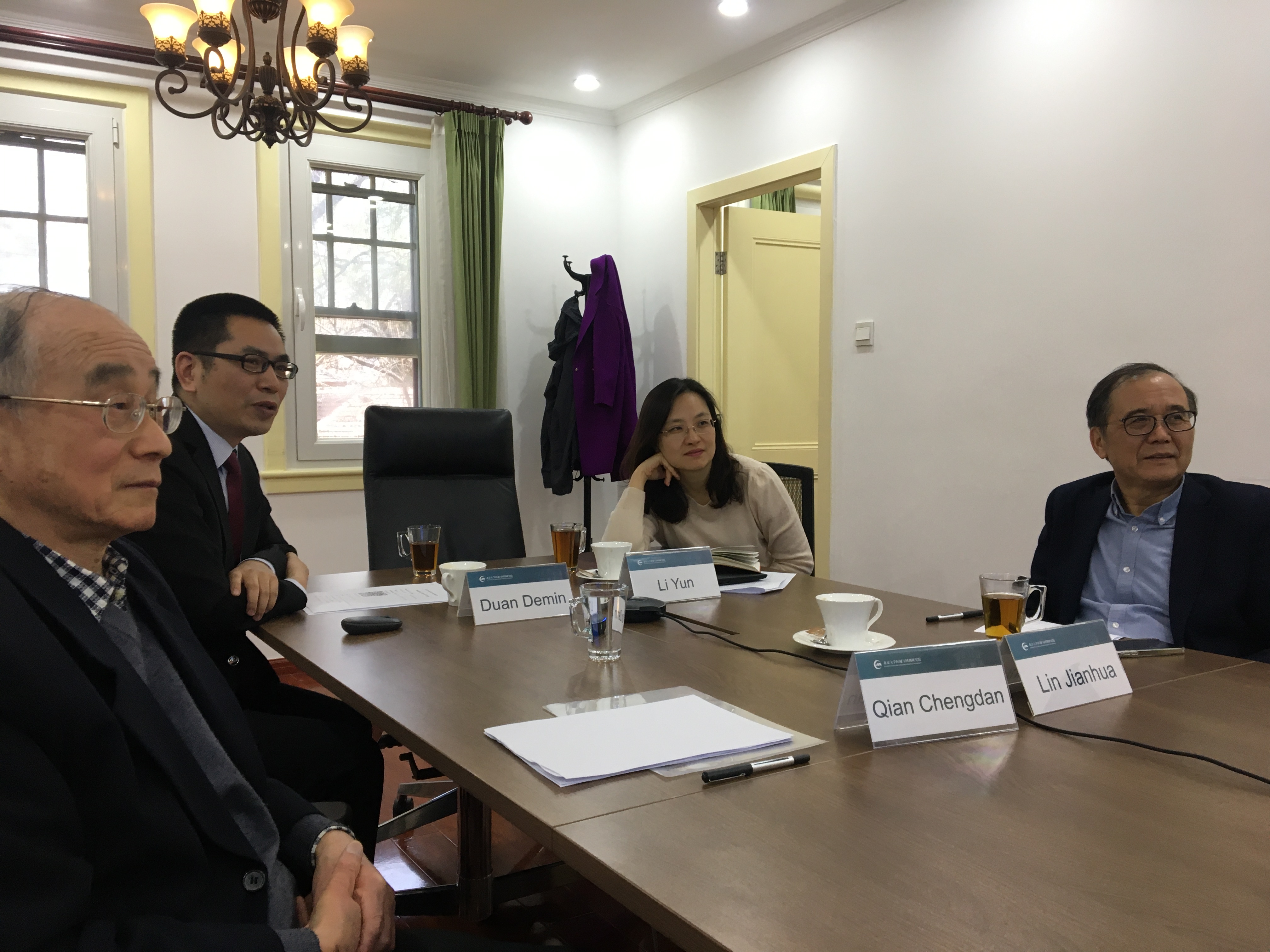The fifth session of the online academic series co-launched by Peking University (PKU), Freie Universität Berlin (FUB) and the University of Tübingen (UT) on area studies was held on April 6, 2022.

Lin Jianhua, former president of PKU, director of the PKU Research Center for Future Education Management; Qian Chengdan, director of the Institute of Area Studies (IAS), PKU; Duan Demin, director of the Center for European Studies, PKU; Verena Blechinger-Talcott, Vice President International, FUB; and Marianne Braig, Vice President Research, FUB, were invited to make presentations during the online academic session. Lee You Jae, professor of Korean Studies, UT, moderated the session.
Prof. Lin Jianhua delivered the opening speech. On the theme of “Area Studies at Peking University,” Prof. Qian Chengdan made a keynote presentation and introduced the five major functions of PKUIAS. On the theme of “Taking Stock and Looking Forward”, Prof. Duan Demin introduced European studies at Peking University from three aspects: its history, research and teaching, and academic exchanges. He stressed that the Center strives to be the primary institution for training future academic leaders of European studies in China, and for pursuing interdisciplinary research on European studies while also looking forward to expanding its global cooperation with other centers for European Studies.
Prof. Blechinger-Talcott introduced area studies at FUB by giving a presentation titled “Balancing Disciplines and Area Expertise and Addressing Transregionality.” She explained that area studies had a strong connection with German philosophers. Nowadays, the field should re-orientate to meet the challenges after the end of the Cold War, with the rise of new global issues. Being interdisciplinary, area studies also requires researchers to have extensive overseas experience and solid field experience. According to Prof. Blechinger-Talcott, area studies is both an opportunity and a challenge to scholars and academic institutions. Prof. Braig gave a presentation titled “The Global Knowledge Value Chain on Sustainability: Disciplinary and Spatial Fragmentations.” She proposed to build a “global knowledge value chain” so as to break down disciplinary and geographical barriers when doing area studies. She pointed out that universities should act together as “knowledge agents” to address the two fragmentations in the global knowledge value chain, and facilitate the global dissemination of relevant knowledge through international partnerships.
After the keynote presentations, speakers answered the questions from the audience.


